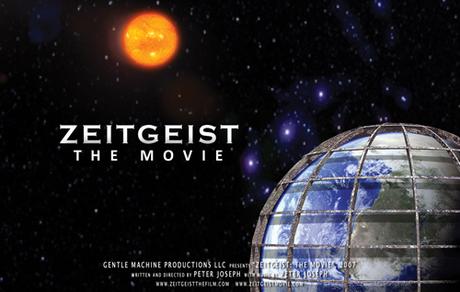
Zeitgeist is a German word referring to both time (zeit) and spirit (geist). The spirit of the times are the popular and influential ideas that are going around. When the Zeitgeist movie was released online in 2007, it gives voice to renewed scepticism about religion in general and Christianity in particular.
It states that the Jesus story we find written in the New Testament is essentially a re-hash of earlier myths about dying and rising Gods. The Jesus of faith wasn’t a real person, rather he was an idea cooked up by people in the past. Here’s a taste of what it says:
“Horus … He is the Sun God of Egypt of around 3000 BC. He is the sun anthropomorphized… Horus was born on December 25th of the virgin Isis-Meri. His birth was accompanied by a star in the east … three kings followed [this] to locate and adorn the new-born savior. At the age of 12, he was a prodigal child teacher, and at the age of 30 he was baptized by a figure known as Anup and thus began his ministry…he was crucified … buried … and resurrected.”[1]
If this story sounds like the Jesus story, Zeitgeist says you are wrong. It is actually the story of the Egyptian Sun God Horus, who’s story was supposedly repurposed by the Christian church and attributed to the later Jesus of Nazareth.
This idea has a big problem.
Actually – this IS the Jesus story which has been mistakenly applied BACKWARDS onto the character of Egyptian mythology – Horus. This would be a bit like claiming the events from Charles Dicken’s life did not happen. Rather, they were actual events from the life of Ebenezer Scrooge (the character from the book A Christmas Carol) that were passed off as events from Dicken’s life. That’s a pretty absurd claim! Right?
If you think Zeitgeist summarises the Christian story, it’s because it does. But, it does NOT properly recount the Egyptian myth, and it anachronistically and incorrectly imposes historical reports about Jesus onto a mythological Egyptian character called Horus.
Chris Forbes is Professor of Ancient History at Macquarie University in Sydney. He’s an expert in ancient myths. And – he has a number of interesting things to say about the mistaken claims of the Zeitgeist movie. You can find a useful interview with Chris here.
First – Horus is not an Egyptian sun God. He was the God of the sky. The sun God was Raa. So Zeitgeist’s play on words (sun God vs son of God) is just pointless and irrelevant.
Second – The mother of Horus was Isis, but there’s no evidence in the Egyptian sources that she was a virgin.
Third – Egyptians would not date Horus’s birth as December 25th, because they used a completely different calendar. December is a Latin month, and so a foreign idea to ancient Egypt.
Fourth – Horus wasn’t crucified and raised from the dead. He wasn’t killed at all. Rather, in this particular myth, it was Osiris who was killed by his brother Set, who dismembered him and hid the pieces around ancient Egypt so they could not be reconstituted again. Isis gathers the pieces, binds them together again with bandages, and so Osiris becomes the first Egyptian mommy that all the rest relate to.
Fifth – the Horus, Isis and Osiris events are not recorded in historical time. Rather, Egyptian mythology is understood to have happened in a kind of dream time, or mythology. By contrast, the New Testament and the reports of Jesus are clearly presented as a historical account.
Sixth – no serious historian doubts that Jesus of Nazareth existed and was crucified by the Romans in the first century. There is debate around whether the Bible’s description of him is correct. But – that he lived is beyond serious consideration. Horus, on the other hand, is a well understood myth.
Seventh – the sources used by the writers of the Zeitgeist movie are not qualified to make their assertions. For example, Gerald Massey is an English Poet and amateur Egyptologist. He’s not a professional historian. And this hurts the credibility of the film and its claims. When you actually check proper references and compare them with the claims that Zeitgeist makes, you can see that actually it is just talking nonsense.
[1] Zeitgeist: The Movie, https://www.youtube.com/watch?v=OrHeg77LF4Y.
